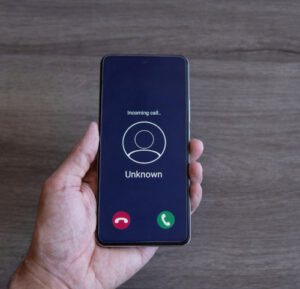
Missed Calls as a Language in SA Households
Before voice notes and blue ticks, before unlimited WhatsApp bundles and TikTok duets, there was the sacred language of the missed call. It rang once. Maybe twice. Then it stopped. And in South Africa, that wasn’t just a dropped connection, that was a whole sentence. A full-blown conversation wrapped in two beeps and a hang-up. A missed call here means more than it does anywhere else. It’s not just a sign of poor signal or a dropped line. It’s a code, an inside joke, a way of saving airtime and saying everything without saying a word. The phone doesn’t even need to be answered, the message has already been received.
You’re at home. The phone rings twice. Your cousin’s name flashes. You don’t answer. You know. It’s not an emergency. It’s “I’m outside.” Or “Please call me.” Or “You forgot to eWallet me.” In that moment, the silence speaks louder than any ringtone. And just like that, you’re in a dialogue with no sound, no data, and no airtime, just rhythm and history. In the days of MTN’s 120 free “Please Call Me”s and Vodacom’s scratch-card hustle, the missed call became a survival tool. Airtime wasn’t just money, it was communication, rationed out in R5 bursts, hidden behind keypad codes and pocket lint. So, we adapted. Innovated. Created our own Morse code of need and nuance.
And in South African homes, this wasn’t just convenience. It was cultural. The matriarch would miss-call everyone when the food was ready. Your older brother would miss-call you to test if your phone was off or just “conveniently unavailable.” Lovers had their own two-ring rules, a double missed call at midnight meant “I miss you.” Three rings? “Answer before your mother hears.”
Even when we moved to smartphones and contract deals, the ghost of the missed call lingered. Parents still do it. Grandparents too. Especially the ones who think apps are spyware and don’t trust any phone without a removable battery. They’ll miss-call instead of texting, like they’re throwing breadcrumbs of attention that you’re supposed to follow.
There’s love in the missed call. There’s care in the effort it takes to dial, wait, hang up. It’s quiet, it’s soft, but it’s real. In a way, it’s more personal than a long voice note or a meme. It says: “I’m thinking of you, I just don’t have the tools to say it properly right now.” It’s humble, it’s coded, it’s genius. And it’s not just families. Taxi drivers, mechanics, the guy who sells boerewors at the robot, everyone knows how to speak missed-call fluently. It’s transactional. “Your car’s ready.” “You forgot your change.” “Come outside.” No words, just context and instinct. A national language built from missed rings and mutual understanding.
 Sometimes the ring isn’t even about communication. It’s about checking. “Does this number still work?” “Did they change SIMs again?” “Did they block me?” There’s tension in it. Suspicion. Hope. A single ring can carry more emotion than a full WhatsApp fight. Because when the phone rings and then stops, your heart jumps. Who was it? Why didn’t they just call properly? Do I call back? Or wait? Or pretend I didn’t see?
Sometimes the ring isn’t even about communication. It’s about checking. “Does this number still work?” “Did they change SIMs again?” “Did they block me?” There’s tension in it. Suspicion. Hope. A single ring can carry more emotion than a full WhatsApp fight. Because when the phone rings and then stops, your heart jumps. Who was it? Why didn’t they just call properly? Do I call back? Or wait? Or pretend I didn’t see?
We don’t talk about it enough, how technology created its own folklore. And the missed call is part of ours. It’s stitched into the way we love, worry, organise, and remember. You know the auntie who still uses a Nokia with the flashlight on top? She’s running her whole emotional economy through missed calls. She’s got a PhD in beepology. One beep for “Call me,” two for “Where are you?”, and three? That means she’s mad.
In relationships, missed calls are loaded. You’re fighting, but not talking. You miss-call. It’s not an olive branch, it’s a test. Do they respond? Do they know what it means? If they call back, they still care. If they don’t, the silence says it all. It’s petty. It’s real. It’s our love language in disguise.
And then there’s the dark side, the missed call that comes from a number you don’t recognise. It lingers. Especially if it’s late at night. Is it someone from the past? Someone with bad news? That eerie sense of being reached out to but not spoken to, it plays on our fears. Because if calls are action, missed calls are ghost stories. They’re unfinished sentences, half-written confessions. There’s a reason why, even now, when most people have unlimited minutes and data packages, we still instinctively know what a missed call means. We haven’t unlearned the code. It’s part of us. Part of how we understand urgency, affection, guilt, pride, and presence. It’s the tap on the shoulder in a crowded room. The post-it note on a fridge. The “I’m here” without the pressure of “Let’s talk.”
Some will say it’s outdated. That we’ve moved on. But next time your mom gives you two quick rings and hangs up, don’t pretend you didn’t feel something. That flicker of history. That connection. That reminder that someone, even if they don’t know how to type emojis, is still trying to reach you. In a country where not everyone has the same access, where load shedding cuts the signal and data prices are wild, the missed call remains the great leveller. Rich or poor, Android or iPhone, prepaid or contract, we all understand the ring-ring-stop.
So when the phone rings twice and nothing follows, don’t ignore it. It’s a message. A whisper. A shout hidden in silence. It’s someone trying to say something the old-fashioned way: without the fluff, without the app, just two rings and a lot of feeling.




